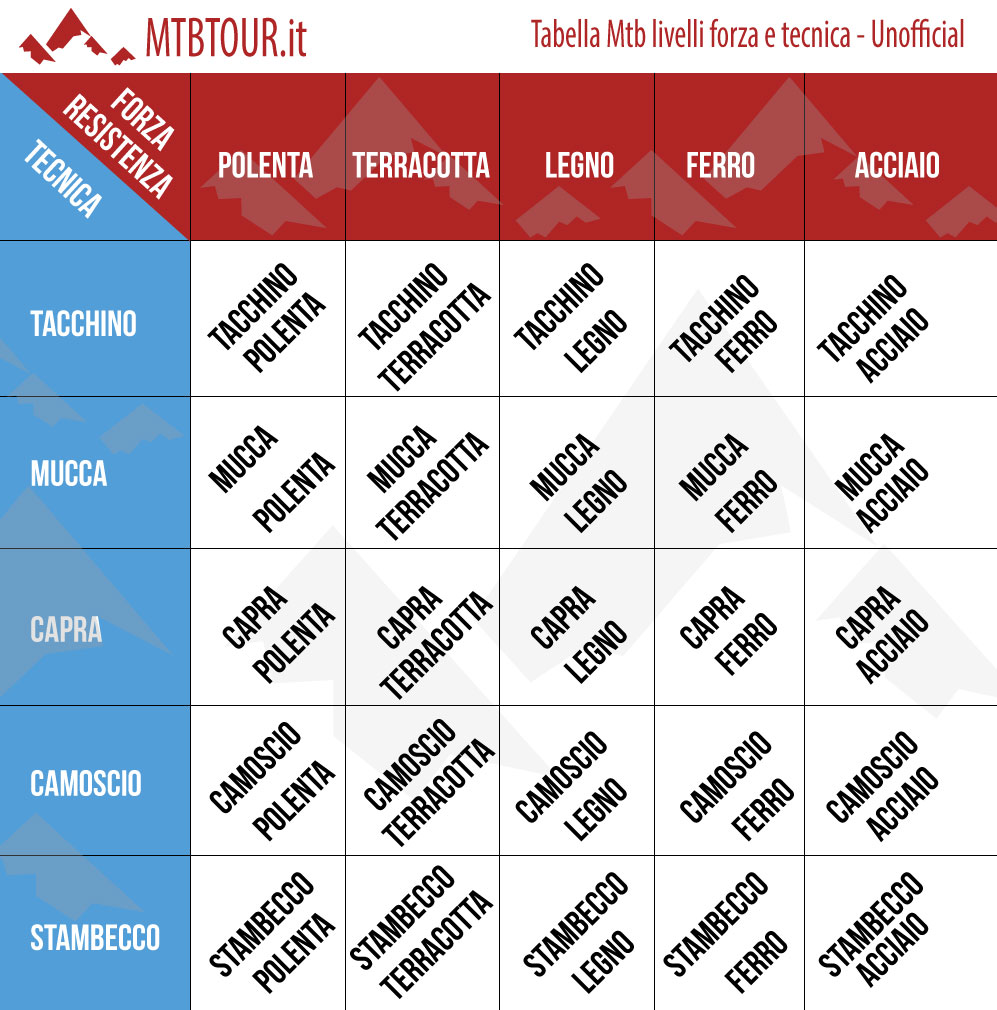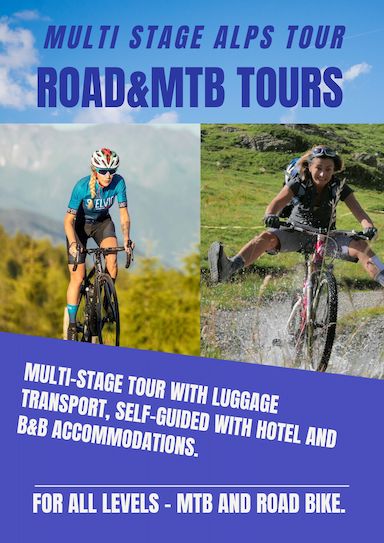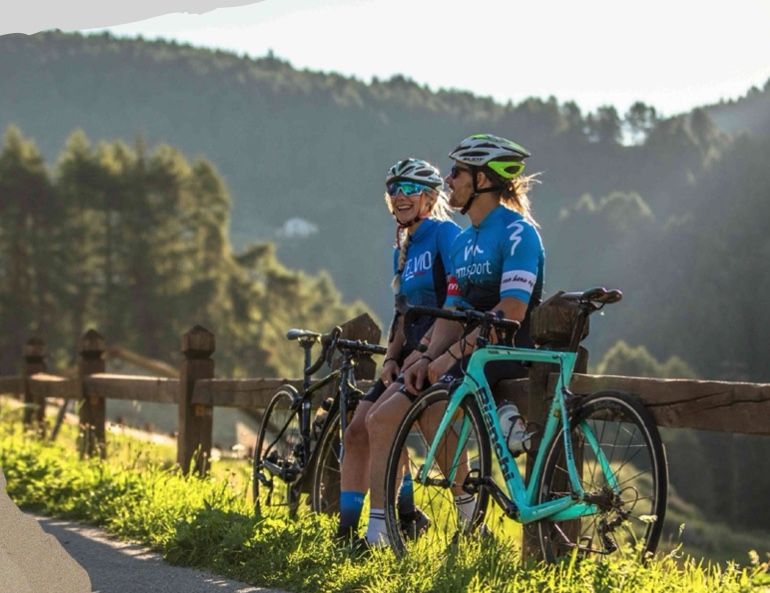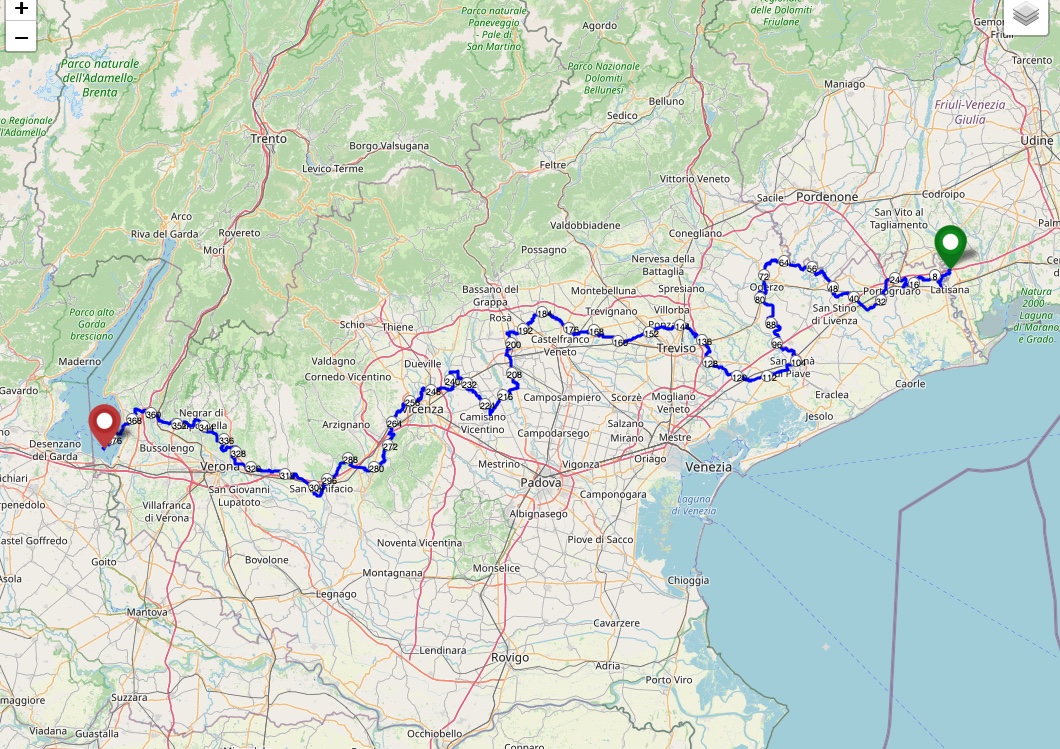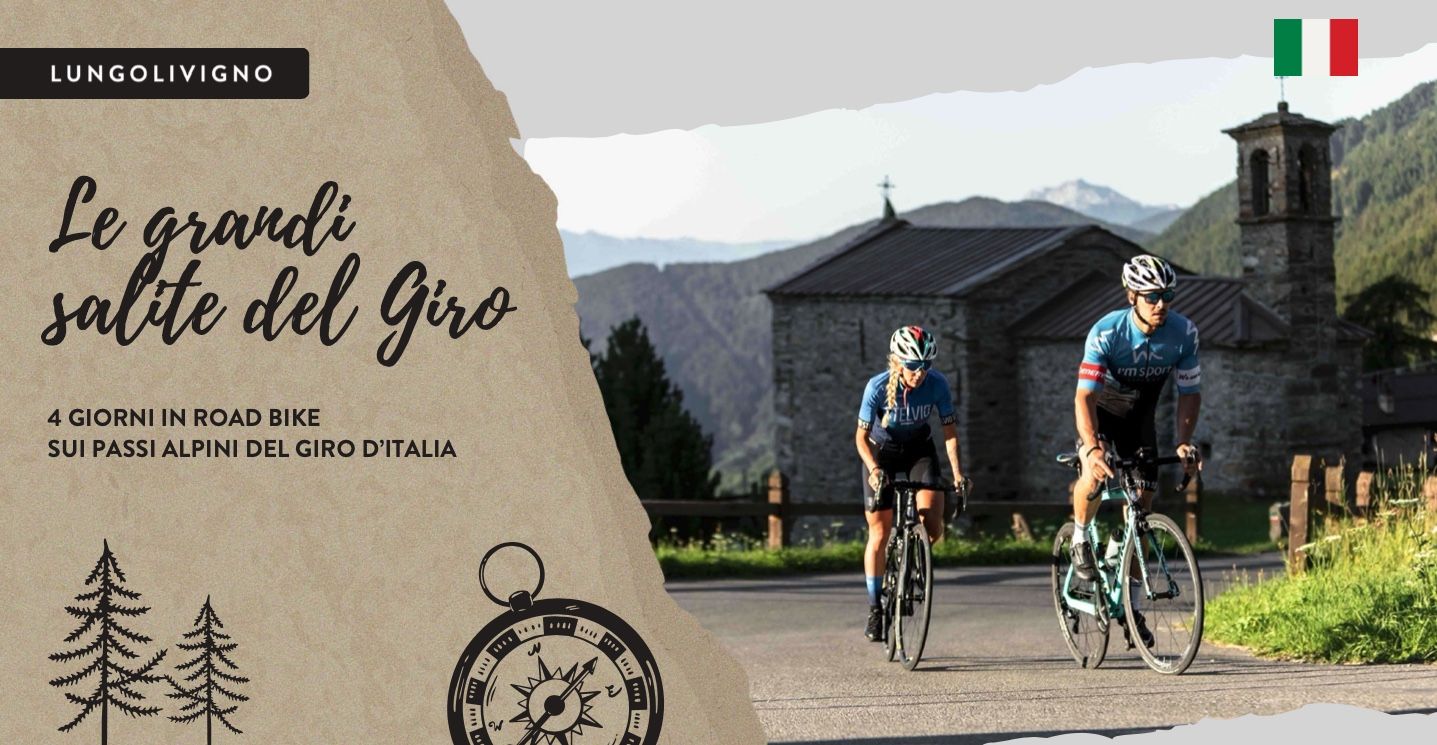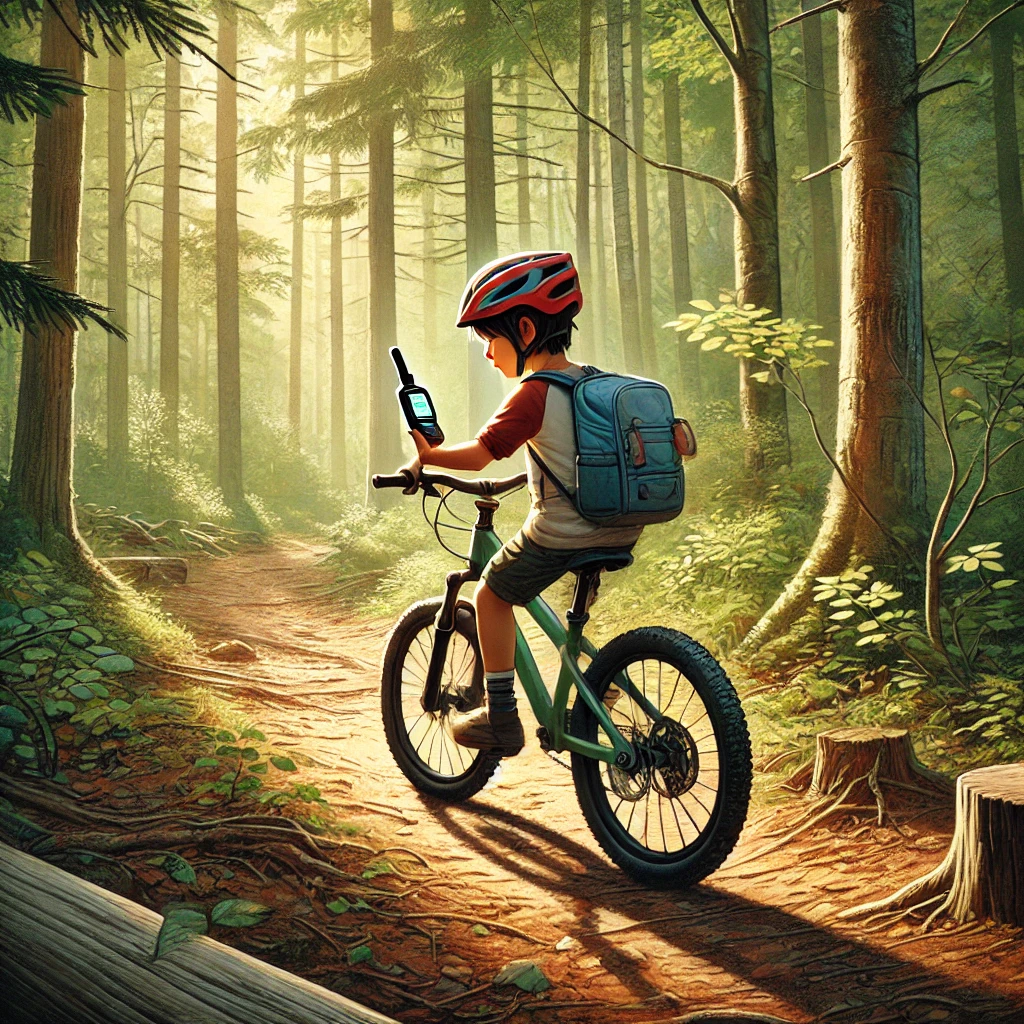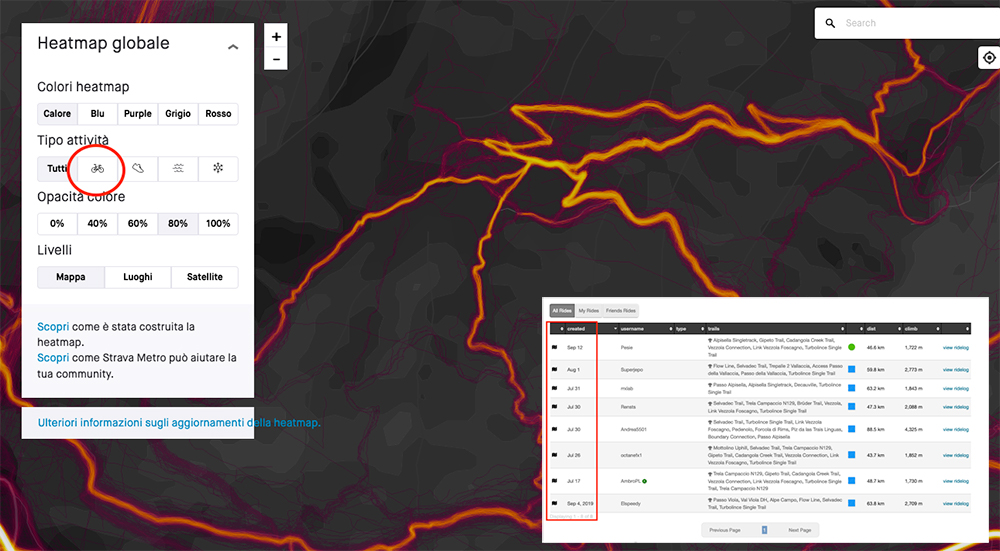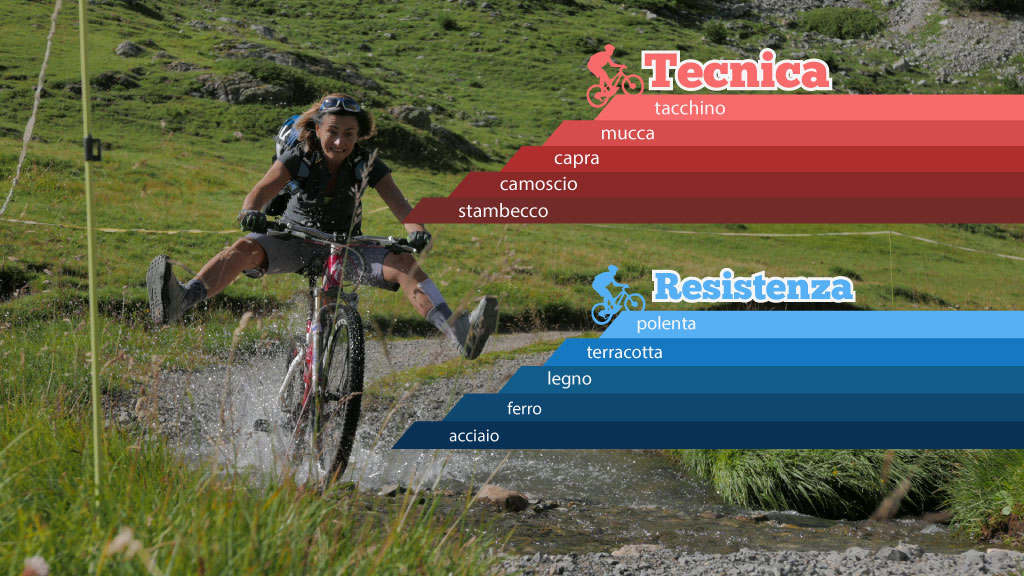
Strength and technique, the levels of Mountain Biking
- Guide mtb, Mtb life
- February 10, 2020
Find out what kind of biker you are with the Turbolince Mountain Bike classification chart
When it comes to mountain biking, route length, technical difficulty, and the required fitness level, it’s always hard to understand in advance our level compared to what a friend, guide, or trail might suggest.
Can I do that trail? Is it too difficult for me? Is it too exhausting?
The CAI provides classification codes that indicate the technical difficulty and physical demand of a trail. However, not everyone wants to read these tables, even though we should. And they’re not always used in common conversations.
So what kind of biker are you? How’s your technique and endurance?
Let’s create a fun, accessible table that categorizes every rider. The table is divided into technical skills and physical strength, because these are two separate elements in mountain biking. A biker can be very fit but lack technique—or the opposite.
MTB technical skill levels
 The Turkey
The Turkey
Moves well on dirt roads and flat, smooth trails. Ideal rides include countryside gravel roads and bike paths. Struggles on uneven surfaces in both climbs and descents.
How to improve
To become a Cow, the Turkey must learn to stand on the pedals, balance body weight for stability, and relax while riding. Practice weaving through cones spaced about 3–4 meters apart on dirt roads.
 The Cow
The Cow
Can handle up-and-down trails without major slopes. Rides well on beaten tracks but struggles with rocks or roots. Can’t ride up curbs or small bridges and often dismounts.
How to improve
If your MTB has a front suspension, improve by riding increasingly technical trails without dismounting. Practice over small obstacles and learn to mount/dismount curbs.
 The Goat
The Goat
Comfortable on all types of trails. Confident over obstacles, rocks, roots, mud, and narrow turns. Handles exposed trails and downhill technical sections with ease.
How to improve
To become a Chamois, train hard and master body positioning on technical terrain. Advanced MTB courses or practice in bike parks are great options.
 The Chamois
The Chamois
Can ride trails difficult to walk on. Performs trial-like moves, clears technical and exposed sections, and handles drops and jumps. Climbs tough ascents and rides with precision.
How to improve
Spend a week in a bike park. Progressively practice jumps, drops, north shores, and step-ups to reach the Ibex level.
 The Ibex
The Ibex
Same trial ability as the Chamois, but also masters jumps and drops over 1 meter. Rides park features like rollers and berms with advanced skills. These are the riders you see in MTB movies.
Strength and endurance levels in MTB
 Polenta
Polenta
Enjoys MTB but can’t handle more than 25 km on flat terrain. A 100 m climb is already exhausting, causing elevated heart rate and weak legs.
How to improve
Gradually increase distance at a relaxed pace. If you can sing, you’re on the right track. Face small climbs slowly using the smallest chainring and largest sprocket.
 Terracotta
Terracotta
Can ride for hours on flat terrain but tires quickly on climbs longer than 15–30 minutes. Legs give out early in the ascent.
How to improve
Incorporate pace changes to raise your heart rate and alternate with recovery. Simulate climbs using heavier gears. On climbs, maintain a pace so slow you feel you could go on forever.
 Wood
Wood
Used to climbing and hilly terrain. Can handle 300–500 m elevation gain, ride uphill for an hour or two, and pedal for hours on flat terrain.
How to improve
Relax in the saddle during climbs. Alternate seated and standing pedaling. Rest and eat after the first 500 m elevation. Use mental mantras for difficult moments.
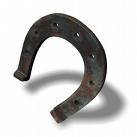 Iron
Iron
Can ride uphill for hours, handle 1500–2000 m elevation gain, and push through fatigue. Knows how to fuel and monitor heart rate effectively.
How to improve
Already a complete rider. You know your body and what works best for improvement.
 Steel
Steel
Rides nonstop for over 8 hours, exceeds 2000 m elevation gain in a day, and does it again the next. Often competes in marathons and XC events. Requires unique dedication and conditioning.
How to improve
Honestly, I don’t know—consider hiring a professional coach. :-)
Mountain Bike classification table for skill and endurance
